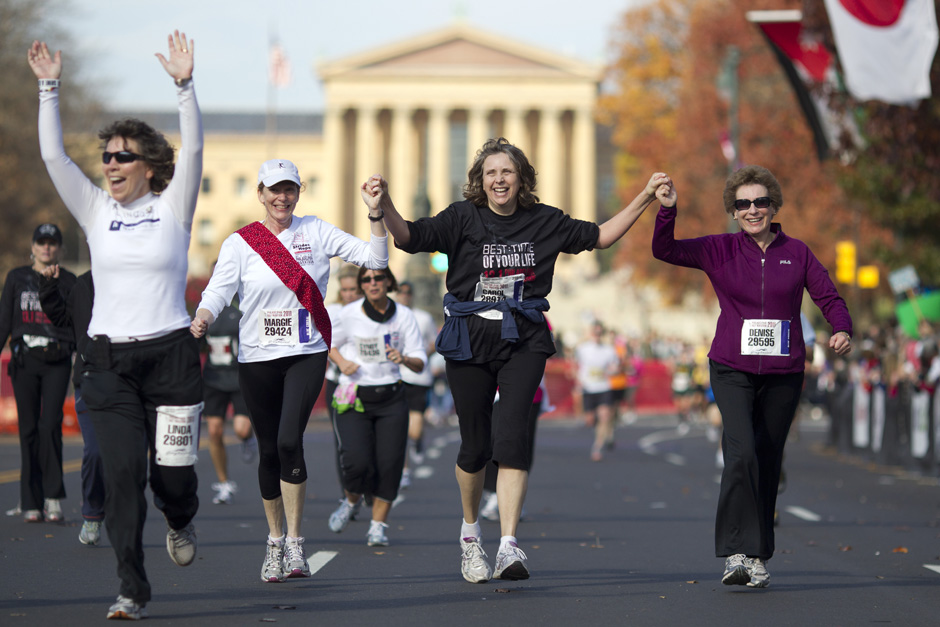Tell Yourself This to Beat Your Marathon Demons

Photo by Mitchell Leff
I know, I know, it sounds totally hokey to cheerlead yourself while you work out. Like, when your inner voice start screaming at you, “C’mon! You can do it! One more rep/mile/lap/{fill in the blank with appropriate fitness term here}.” But according to a new study, which looked at the mental connection to physical fatigue, encouraging self-talk can make a world of difference for your workout.
Here’s why: It’s a fact of science (i.e. other studies have shown) that people often shut down long before their bodies are actually taxed to the point of total physical exhaustion. In other words, we quit while we still have ample gas in the tank. Why? Because our brain tells us we’re tired, and we listen.
So for the study in question, researchers took a group of volunteers, all of whom pedaled stationary bikes at 80 percent of their capacity (predetermined by some baseline tests) for as long as they possibly could until they felt they were completely and utterly spent.
Then the group was divided in two: Half was told continue with their normal workout routine for the next two weeks. The other volunteers were also told to work out as usual, but they were taught how to motivate themselves through positive self talk, with specific phrases—”You’re doing well!” “You’re feeling good!”—meant to combat the mental exercise demons. These volunteers practiced self-talk during the next two weeks of workouts. Then all the volunteers were brought back to the lab for another test.
Listen to this, via the New York Times:
Afterward, it was obvious that self-talk had bolstered riders’ feelings and performance. The group that had talked to themselves had pedaled much longer before succumbing to exhaustion than in their first rides and reported that the pedaling had felt easier, even though, objectively, their heart rates and facial expressions had remained the same, indicating that the physical exertion had been just as great as in the initial ride.
The riders in the other group, meanwhile, generally repeated their performances from before, lasting about the same amount of time before quitting and feeling about the same degree of discomfort.
Cool, right? I hope all you Philly Marathoners are paying attention, as these findings could be especially useful on your 26.2-mile run Sunday. Going into the race, know that your inner demons will crop up; it happens to everyone. But having a few positive self-talk mantras in your arsenal could make a world of difference in how you feel by the time you cross the finish line.
So say it with me: “I’m feeling good! I’m feeling strong! I can do this!” Because you can do it.


